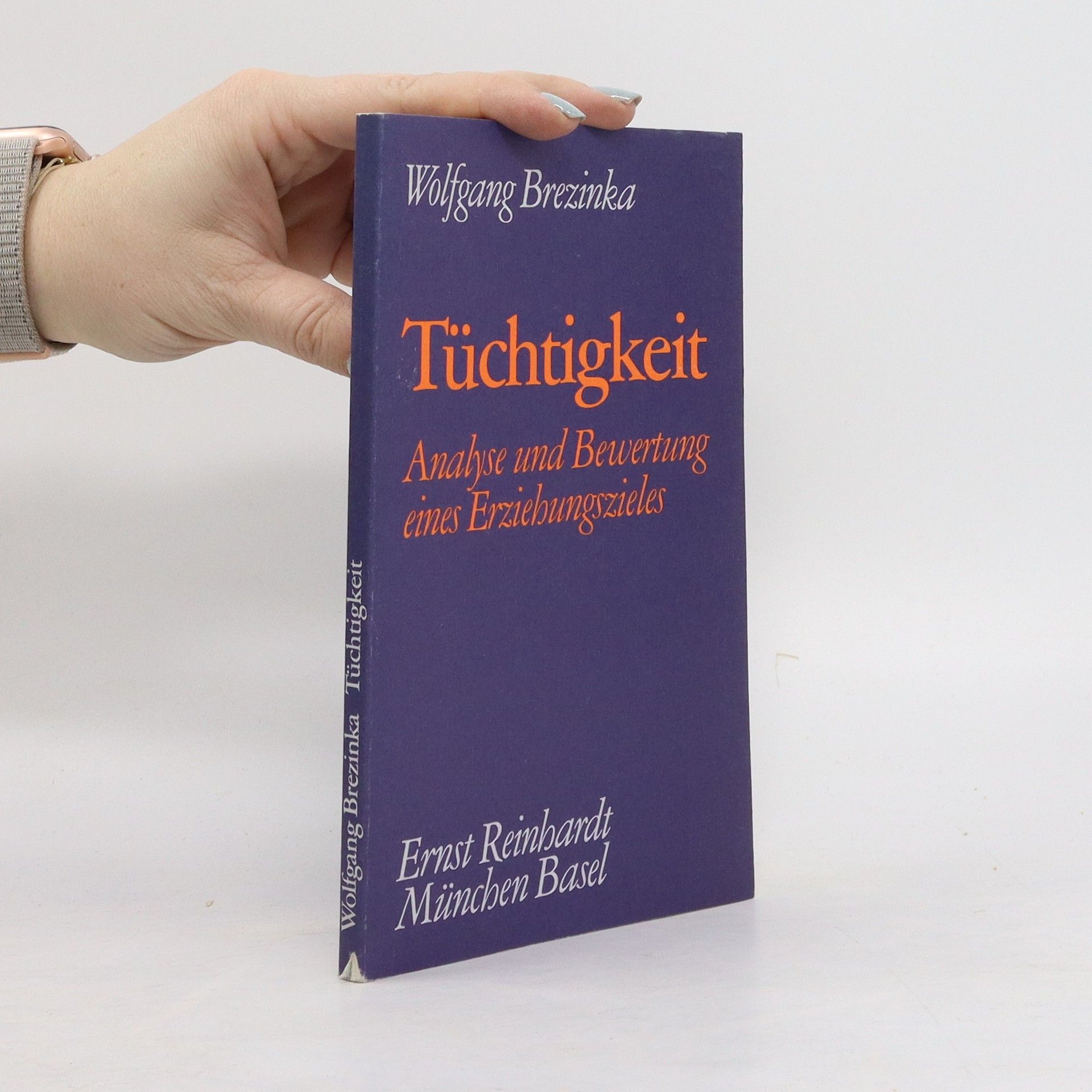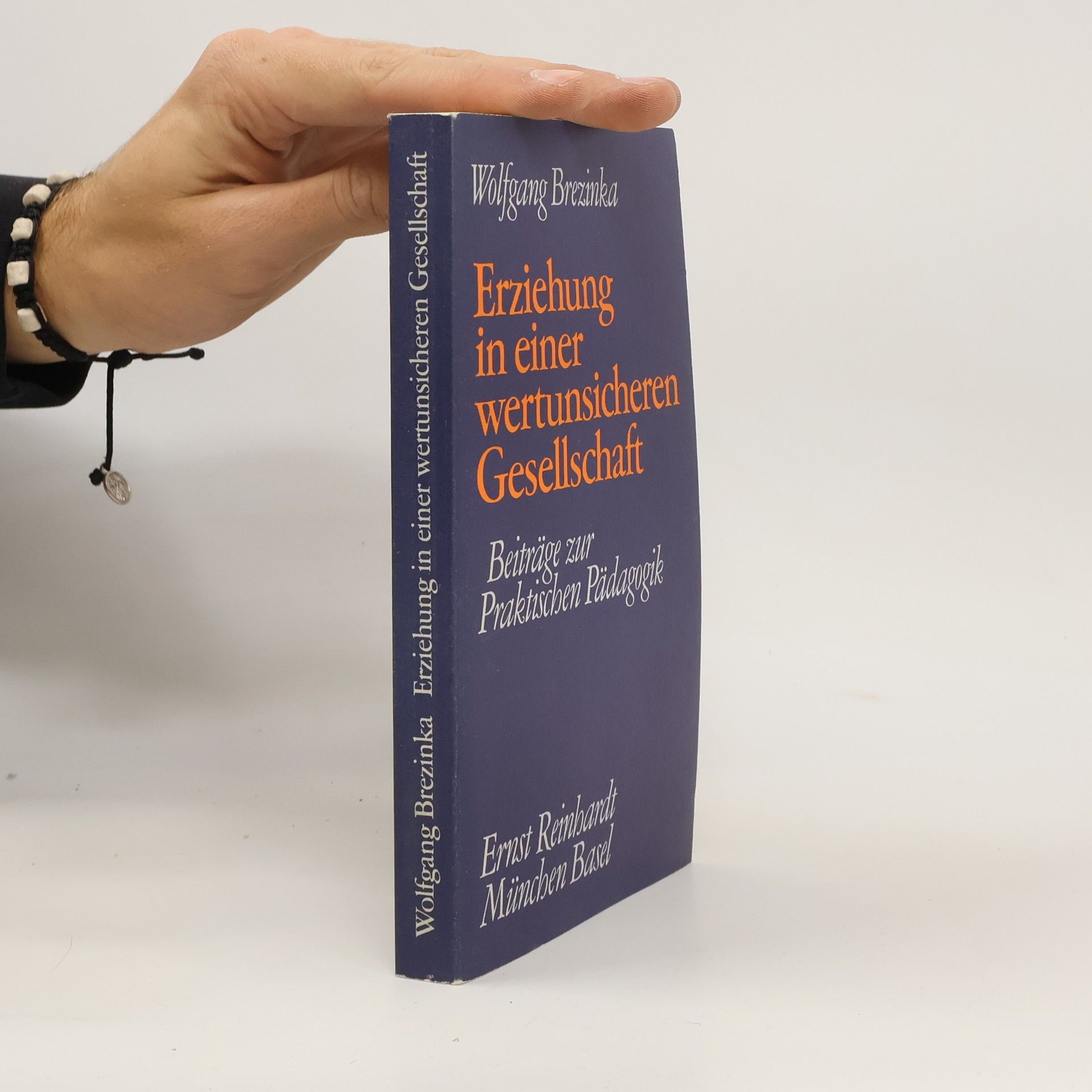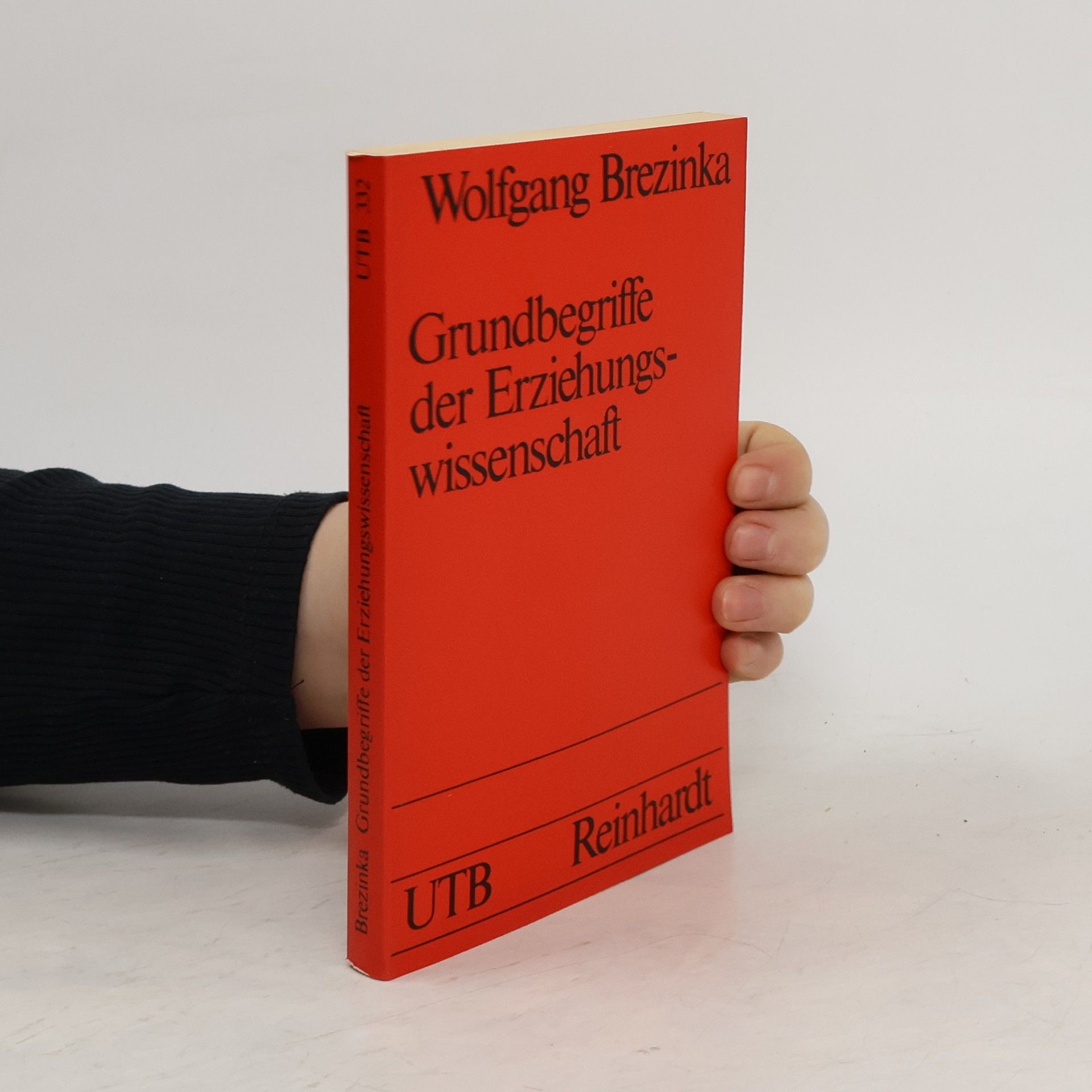Wolfgang Brezinka Boeken

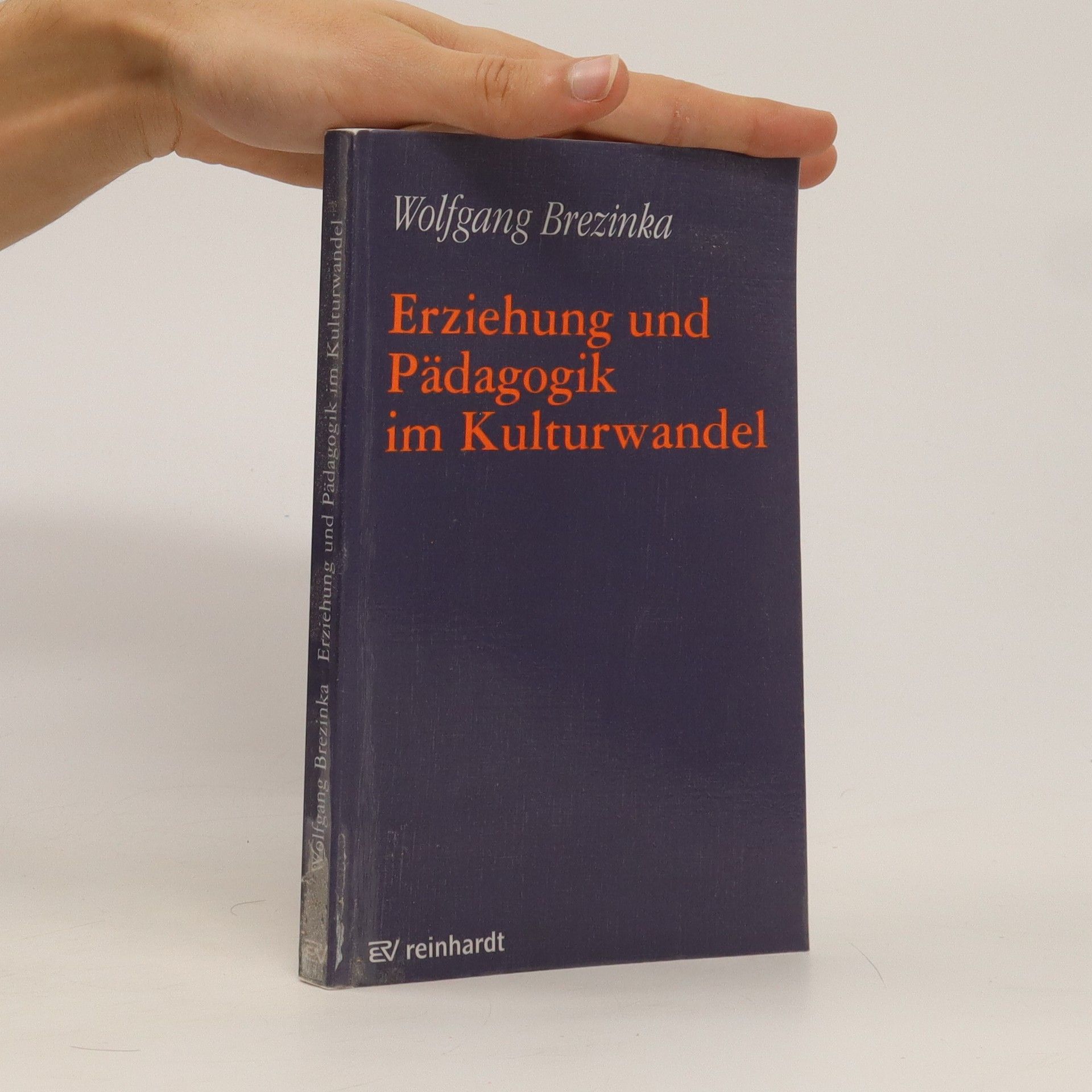
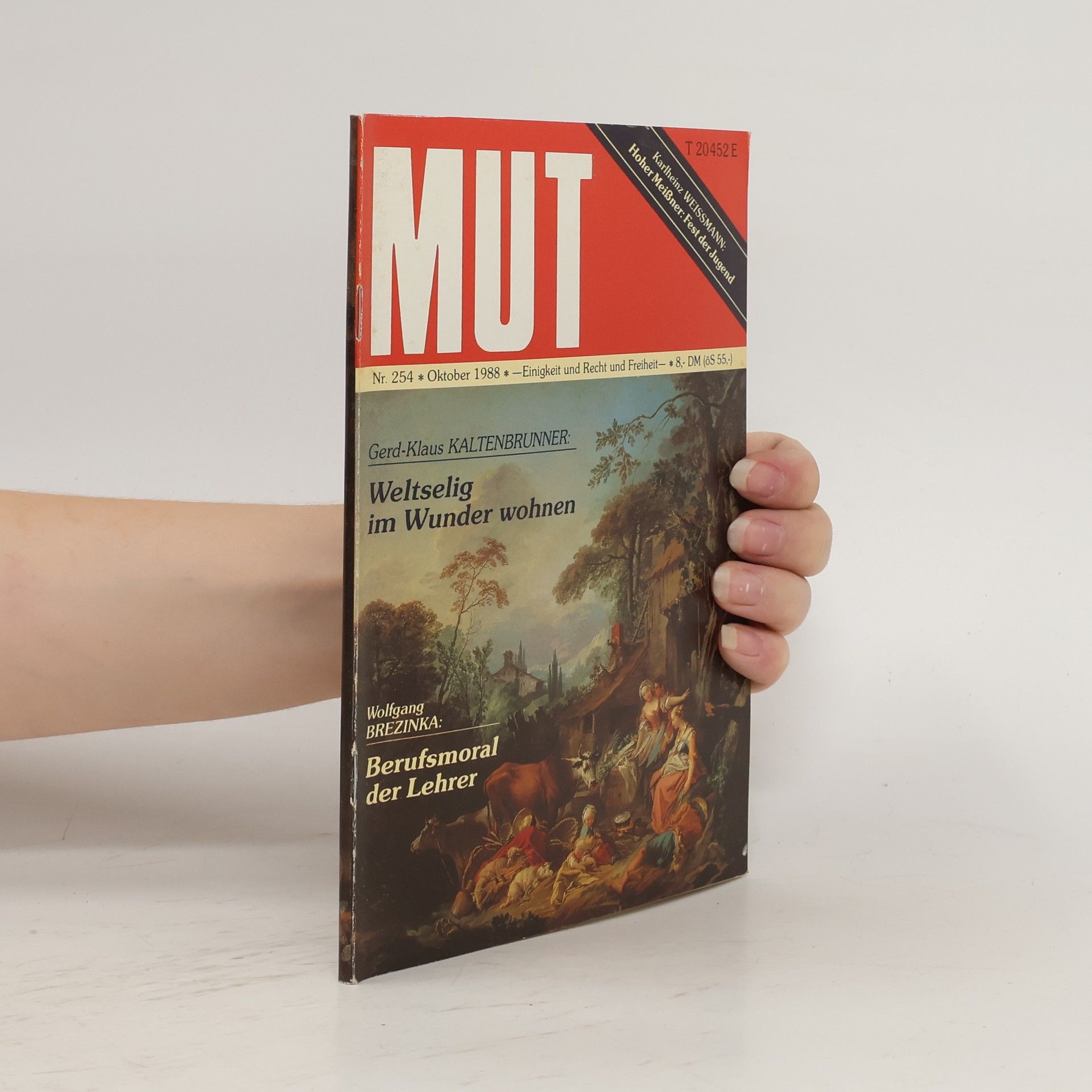


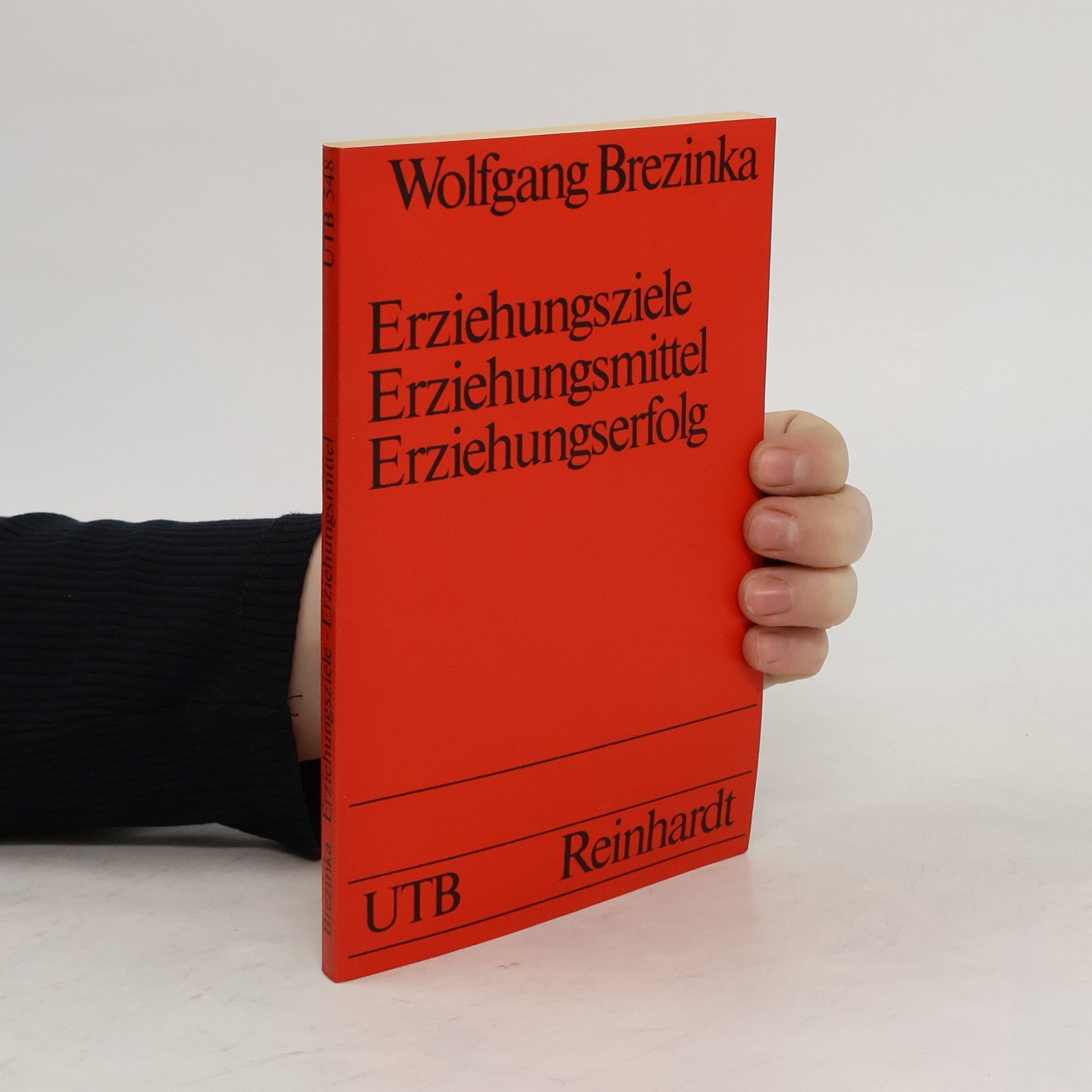

Kniha známého německého pedagoga zbývající se problematikou výchovy v dnešní společnosti a otázkou hodnot ve výchově a vzdělání.
Pädagogik als umkämpftes Fach
Lebenserinnerungen 1967-2020
Im zweiten Teil seiner Autobiographie schildert Wolfgang Brezinka seine Lebensgeschichte zwischen 1967 und 2020. Einen zentralen Stellenwert nehmen dabei seine Kampfe an der 1966 gegrundeten Universitat Konstanz ein, die hier zum ersten Mal unbeschonigt geschildert werden. Wolfgang Brezinka (1928-2020) war mit dem Erkenntnisstand des Lehrfaches Padagogik sowie der Qualitat des eigenen padagogischen Wissens seit seiner Studienzeit unzufrieden. Systematisch vergroaertPe er das eigene Fachwissen und scheute nicht vor Kampfen fur die Anerkennung und den Ausbau serioser Padagogik als universitares Studienfach zuruck. Mit seinem Mut zur Kritik mangelhafter Erziehungstheorien und ihrer unhaltbaren Grundlagen geriet er in Deutschland und Osterreich in den 70er-Jahren des 20. Jahrhunderts in erregte Kontroversen. Sein reichhaltiges Werk ist ein uberaus produktiver Beitrag zur Entwicklung des Fachs Erziehungswissenschaft. Im zweiten Teil seiner Autobiographie schildert Brezinka nicht nur seine Lebensgeschichte ab 1967. Das Buch ist auch der erste unbeschonigte Beitrag zur krisenreichen Grundungs- und Fruhgeschichte der Universitat Konstanz und ihrer spannungsreichen Beziehungen zur Landesregierung von Baden-Wurttemberg zwischen 1965 und 1979. Deshalb ist ein Anhang mit 14 bisher unveroffentlichten Dokumenten beigefugt.
In den modernen Gesellschaften vollzieht sich ein schneller Kulturwandel. Von ihm sind nicht nur Wissenschaften, Technik und Wirtschaft betroffen, sondern auch die normgebenden Kulturgüter wie Religion, Weltanschauung, Geschichtsbild, Moral, Recht, Sitte und Kunst. Die damit verbundene Orientierungsunsicherheit ist eine Herausforderung an die Erziehung. Was kann in dieser Lage getan werden, um negativen Folgen zu begegnen und Chancen zu nutzen? Das ist das Thema dieses Buches. Es bietet realistische Orientierungshilfen für Lebensführung, Erziehung und Bildungspolitik. Dazu gehört auch Kritik an Irrwegen der Erziehungswissenschaft und die Rehabilitierung einer Praktischen Pädagogik, die für Eltern, Lehrer und andere Erzieher brauchbar ist. Pressestimmen „Brezinka gelingt es wie kaum einem anderen Autor, verwickelte Zusammenhänge verständlich zu machen und wissenschaftliche mit philosophischen und gesellschaftstheroetischen Gesichtspunkten zu verbinden. Die Vorschlage, die er für die Neuordnung der Erziehung in Theroie und Praxis macht, werden über den Tag hinaus aktuell bleiben.“ Pädagogische Rundschau. Dieser Titel ist auch ab ca.
Pressestimmen "„Brezinka gelingt es wie kaum einem anderen Autor, verwickelte Zusammenhänge verständlich zu machen und wissenschaftliche mit philosophischen und gesellschaftstheroetischen Gesichtspunkten zu verbinden. Die Vorschlage, die er für die Neuordnung der Erziehung in Theroie und Praxis macht, werden über den Tag hinaus aktuell bleiben.“" Pädagogische Rundschau. Dieser Titel ist auch ab ca.
Pressestimmen „Brezinka gelingt es wie kaum einem anderen Autor, verwickelte Zusammenhänge verständlich zu machen und wissenschaftliche mit philosophischen und gesellschaftstheroetischen Gesichtspunkten zu verbinden. Die Vorschlage, die er für die Neuordnung der Erziehung in Theroie und Praxis macht, werden über den Tag hinaus aktuell bleiben.“ Pädagogische Rundschau. Dieser Titel ist auch ab ca.
